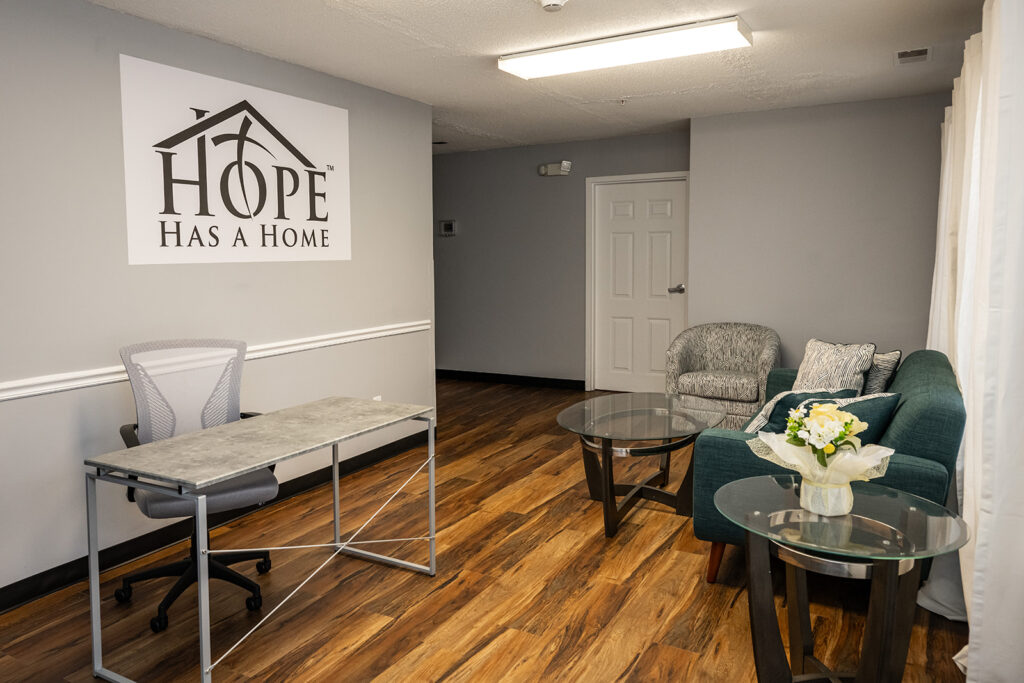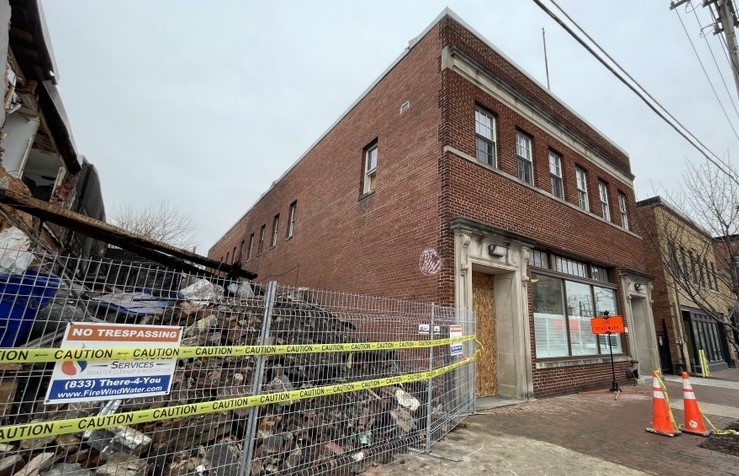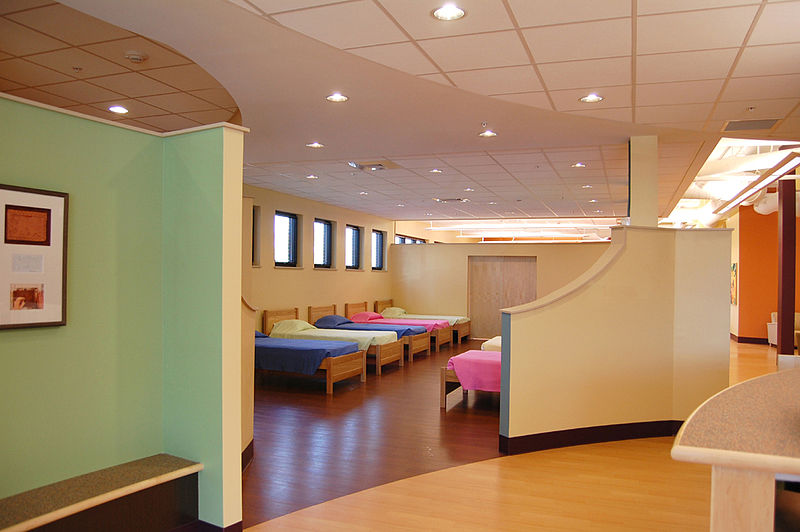The idea of homeless families sleeping in unsafe places while beds stand empty at the city’s emergency shelter rankles city council member Jim Graham.
Graham, who chairs the council’s human services committee, expressed his frustration with the situation at a Sept. 17 press conference. And he was not alone. Fellow council member Michael A. Brown and a crowd of families joined him at the event, held at the shelter at the former DC General Hospital.
“We are here today to call attention to a problem,” said Graham. Homeless children and their families should not be sleeping in parks, laundromats and bus stations while the city’s emergency family shelter at the former DC General Hospital has over 100 empty units, he said.
“We want those beds to be filled,” said Graham. While family homelessness has increased dramatically since the recession hit, city efforts to address the problem have lagged, said the councilmen. The families urged the city to take swift action to get more funding for homelessness.
Currently, however, the money just isn’t there. A $7 million shortfall has been projected for the city’s homeless services budget for fiscal year 2013, according to David Berns, director of the city’s Department of Human Services. The shelter at the old hospital, which routinely houses more than 150 families, has served as the city’s only hypothermia site for families since the decrepit DC Village Shelter closed in 2008.
The additional 118 units, opened last year and now standing vacant are being held in reserve for the winter months, Berns said. At a cost of $500,000 a month to operate, it will cost the city $4 million to keep the 118 rooms open for the eight months when they are most needed, from November through June. Keeping them open year round would cost $2 million the city does not have, Berns added. To make matters worse, the city would run the risk of having no overflow space for families during the winter hypothermia season, requiring a costly alternative: the use of hotel rooms, Berns said.
“FIlling them now would result in the use of hotel rooms, which evidenced by the cost this past hypothermia season, could potentially result in up to $3.5 million in additional expenses,” he said. Such spending could result in other painful choices, such as the closing of emergency shelters for single men and women during non-hypothermia months, he said.
Berns instead is emphasizing an initiative that combines casework services for homeless and welfare families. The initiative is geared toward rapidly addressing the problems underlying the families’ homelessness rather than sheltering them longterm.
“Say you have 1,200 families who come in during the year.,” Berns said. “The idea is not to build 1,200 shelter units and keep them for a year, but to build 100 shelter units and keep them for a month.”
Berns stresses that shelters are not a good response to homelessness and the families at the Sept. 17 press conference told stories that bore him out. They complained of bad food, rodents and other problems at DC General.
Yet there were also those who said they wished they at least had a room in the shelter. Mary Brown, a mother of two young girls, said she suffers from heart disease and lost her job in 2010. After becoming homeless four months ago, she said she and her children ended up
sleeping in a park in Southeast DC. Her efforts to get help from local nonprofits or from the city’s Virginia Williams Family Resource Center, have so far proven fruitless, she said.
“No one would help me. I mean all they keep telling me is go here and go there but you go there and you sit all day long for them to say no at the end of the day.”
When Brown requested housing from the shelter at DC General, and told the representative that she had been sleeping in the park with her two daughters for two nights, the representative called child protective services , she said. She feared the children might be taken from her.
City officials have said they are required to report cases where children may be in danger, in order to determine whether they are being neglected or abused, but have stressed that homelessness alone is not a basis for removing children from their parents.
“Clearly they were clean. I knew that I had been taking care of them,” said Brown. “I might have had to use the Mc Donalds bathroom but I have been taking care of them. They’ve been going to school everyday. I don’t understand why I can’t be helped,” Brown said.







